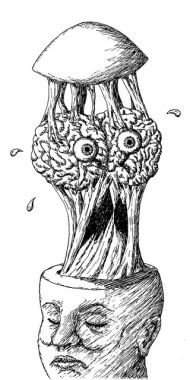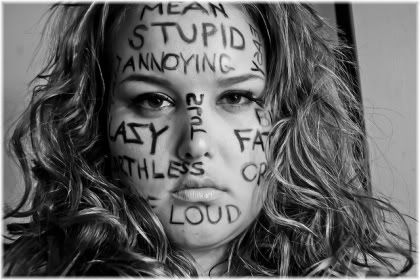As a child, you probably experienced a time in your life when you were told that you weren’t good enough, or didn’t do something well enough.
Sometimes, you would hear this from your parents, who, out of anger or disappointment, would say something hurtful to you. Other times it would come from your classmates, who would say things like “you’re not cool enough to hang around with us, go away, nobody likes you“.
Whilst this form of rejection would be damaging to anyone’s self esteem, it is even more hurtful and harmful when it occurs during childhood development. One of the main reasons why this is the case, is because young children are highly susceptible to suggestion.
Unlike an adult who has already lived for many years, a child has a very limited life experience, and therefore, their knowledge of the world is also limited.
The result of this inexperience is that children have a natural tendency to believe what other people tell them. For the simple reason that they have not acquired enough information about the world to argue against or reject what people say to them.

This is why during early child development anything is possible for a child, and also why they tend to have such a vivid imagination.
However, as the child continues to develop and society begins to impose restrictions on their beliefs (by telling them what is real/not real, right/wrong) their imagination, creativity and open-mindedness gradually begins to decrease.
A good example of this can be seen with children who believe in Santa Claus, the Tooth Fairy or the Easter Bunny.
Since the child has been told by their parents that these things are real, they will continue to believe in such magical figures until someone tells them that they do not really exist which then causes the child to reexamine their existing belief and form a new belief.

Not all beliefs however, are as innocent as believing in Santa Claus or the Tooth Fairy, especially if those beliefs are associated with a strong negative emotion such as fear.
For example, a child who is scared of the dark because they think that the boogeyman will get them, will eventually reject this belief when they learn that the boogeyman is not real.
But despite the fact that they no longer believe in the boogeyman, in the subconscious mind of the child, darkness and fear have now been associated together. As a result, this child may continue to fear the dark into their teens or even as an adult.

This exact same principle applies to all our childhood experiences, such as those where we were told by others that we weren’t good enough. These negative statements which subsequently generate a negative feeling within us, become stored as emotional memories deep inside the subconscious.
Later in life, whenever something triggers those memories, we automatically feel the feeling associated with that emotional memory.
For example, suppose that when you were a child you failed to do something. As a result of your failure, you were then made to feel inadequate by another person who told you that “you’re hopeless“, “you’re good for nothing” or that “you can’t do anything right“.
Since as a child your mind is still very impressionable, you accept that you are “good for nothing” because of what you failed to do. This acceptance then results in the creation of a subconscious emotional memory, where failure becomes linked to feelings of inadequacy.
This memory will also become part of your belief system, which will then influence how you see yourself and the world you live in.
Once this negative childhood experience has been stored in your subconscious, it will continue to affect you for the rest of your life unless you do something to change it.

For example, since you now believe that you are good for nothing you expect to fail, and so you miss out on many opportunities in life because you did not go after them.
Or if you do experience some kind of failure in your life, your subconscious feelings of inadequacy are reactivated which then causes you to feel like you’re good for nothing, just like how you were made to feel as a child.
As you can see from the above example, in both cases, the negative subconscious belief which was created as a result of a negative childhood experience is self reinforcing. This means that the negative belief has a tendency to grow stronger by itself.

Overcoming this belief can be difficult, because it has been stored in your subconscious since you were a child. So even though you may say to yourself “I can do this” or “I am not a failure“, your subconsciously stored emotional memory will continue to make you feel inadequate.
This is an extremely important point to recognize, because your emotions and the feelings that you experience as a result of them, are a very powerful motivator of human behavior. So powerful that they can cause you to automatically do things you don’t really want to do.
For example, if you are very angry you might hit someone, but later regret doing it. Or you may suddenly find yourself trembling with fear, even though consciously you feel that there is nothing to be afraid of.
Essentially, what this means is that your subconscious emotional memories can dominate your conscious thought processes, by causing you to feel a negative emotion when you are trying to feel a positive emotion.
So even though you may be trying to think and feel confident, your emotional memories continue to make you feel inadequate.

Another important point to recognize about emotions is that the subconscious tends to place greater value on two types of information:
1) Powerfully charged emotions
2) Frequently entered information
Since people tend to think about their negative beliefs a lot, and experience emotional discomfort from them, this self reinforcing nature shows exactly why negative beliefs can be so hard to get rid of.
How to Overcome Feelings of Inadequacy

Use the following steps to help you identify and overcome feelings of inadequacy.
1) Identify
The feeling of inadequacy results in you thinking that you are not good enough to do something or have something.
2) Remember the meaning
The feeling of inadequacy tells you that you have a negative subconscious belief which makes you feel as though there is something wrong with you.
This feeling also tells you that you might be lacking a certain skill in your life, which if you learned how to do, would positively benefit your life.
3) Determine why you are feeling this way
The feeling of inadequacy is usually caused by some failure in your present, or anticipated failure, which triggers a negative subconscious emotional memory from your past.
4) Do something to change your feelings
You can help to overcome feelings of inadequacy by doing the following:
i) Prevent any more negative beliefs forming in your subconscious.
ii) Remove or replace the negative beliefs you currently have.
Below are some suggestions on how you can implement these steps into your life:
Question Your Beliefs
The first step you need to take to prevent accumulating any more negative subconscious beliefs, is to question your beliefs and the beliefs of others.
For example, if someone says something negative towards you, or you have a negative thought, question whether it is really true rather than just accepting what they say at face value. In most cases, you will find that by changing your perception of the situation you will no longer feel inadequate.

Also remember that although adults are far more critical than children of the information they hear from others, they are not immune to negative comments. This is because people naturally place greater emphasis on information which they hear from friends, authority figures and society.
So if any of these are making you feel inadequate, start to question why this might be. As often we behave just like children and accept whatever these people say, even if what they are saying is not true or harming us in some way.
Understand That You Are Not Your Failures
Do not make the mistake of associating how you feel about yourself with your abilities and accomplishments. Otherwise, whenever you don’t perform something well, you will feel as though there is something wrong with you, like you are just not good enough.

Understand that when you fail it doesn’t make you a failure. People fail all the time and have experiences which they would rather forget. Successful people use these failures as life lessons, lessons from which they can learn from and grow stronger.
Unsuccessful people allow their failures to define them. So rather than learning from their failure, they see it as a reflection of who they are as a person which then has a negative impact on their self-esteem and self-confidence.
This in turn then increases the chance of them experiencing more failures in life and furthering lowering the view they have of themselves and of their abilities.
Remember How You Were Born
Since you were not born feeling inadequate, at some stage in your life you learned to feel inadequate, which also means that you can unlearn it.
An effective way to do this is to monitor your thoughts and reject the negative beliefs that come into your mind by replacing them with positive thoughts.
This is also known as self talk, which is a term used to describe the thoughts you have and how you talk to yourself.

Self talk is often a reflection of the type of negative beliefs that are stored in your subconscious, and is one way in which beliefs can reinforce themselves.
For example, thoughts like “I can never do that” or “I’m such a stupid idiot” which are repeated over and over again throughout a person’s life, serve to deeply ingrain such beliefs into the subconscious.
By stopping this negative self talk, and replacing it with positive self talk, you can repair some of the damage that has been done and prevent new negative subconscious beliefs from forming.
In order to successfully reprogram your subconscious, you must master your self talk. No exceptions.
Uncloud Your Judgement
Your subconscious emotional memories can be triggered by an external stimulus which then causes you to feel the feeling associated with that emotion.
This emotion can then dominate your thinking, causing you to think or act in a way that goes against how you consciously wanted to think/act. In other words, your feelings can make you feel bad, even though you are trying to make yourself feel good.

Because emotions can cloud your judgement, you may find it helpful to ask a friend to see what they have to say about the situation.
You might find that something triggered your subconscious emotional memory of inadequacy causing you to feel inadequate, when in reality, there was no need for you to feel inadequate because you did nothing wrong.
If you are unable to ask a friend, you can do this by yourself using a sheet of paper. On one side of the paper, write down all the things you are telling yourself that happened.
On the other side, write down what actually happened. This will help you to see the reality of the present, by separating it from the emotional memories you have of the past.
Once you are able to separate your past from your present, you can then objectively look at the situation to see how it could be improved.
What you will usually find is that your feelings of inadequacy come from a lack of knowledge or skill, which if you were to improve, would also improve that area of your life.
Experience Life
Whilst monitoring and changing your thoughts is certainly a very important step in reprogramming negative beliefs, if that’s all you do, then it won’t be very effective.
This is because all the experiences that we have in life are stored in our subconscious, which then affect how we view ourselves and the world we live in.
So unless you have new experiences in your life, you will be stuck with your old negative subconscious emotional memories.

It may be possible to overcome these negative beliefs by changing your thoughts, but without experience to solidify it, this change will largely be superficial and therefore will not have a lasting impact on your life.
You can spot superficial change by how you react to things. For example, suppose that you are working on controlling your anger with your thoughts alone.
After a few weeks or months you feel that you have managed to control your anger, but then something bad happens and you lose it. Afterwards you feel bad, because you thought that you had learned to control your anger, but obviously you were wrong.
In this example, you can see how superficial change can give the illusion of making things better, when in reality, no lasting change had been made to the subconscious.

The best way to incorporate new information into your subconscious is to learn about it and do it. Using what you learn to guide you through your experiences.
For example, you may fear doing something because of some perceived negative consequence. But if you view all experiences as beneficial (whether they are good or bad) because you will learn something from them, you will be more confident to experience new things and find it easier to get through the bad times in your life.
This attitude of learning from your mistakes and then applying what you learn to your life is the very foundation of self-improvement.
Summary
When you feel inadequate you feel like you are not good enough. This feeling usually comes as a result of a subconsciously stored negative emotional memory from your past.
Whenever something happens in your present that activates this memory, you will start to feel inadequate. Associated with these feelings will be thoughts of inadequacy, causing you to think and feel like you are not good enough.
To overcome your feelings of inadequacy, you need to monitor your thoughts by carrying out the advice given in this article.
This will help to prevent your negative beliefs from reinforcing themselves, and eliminate inappropriate feelings of inadequacy which were generated by something reactivating your past emotional memories.
In addition to this, you need to experience new things in your life and use those experiences to create new subconsciously stored positive emotional memories.
Reviewed – 30th March 2016
